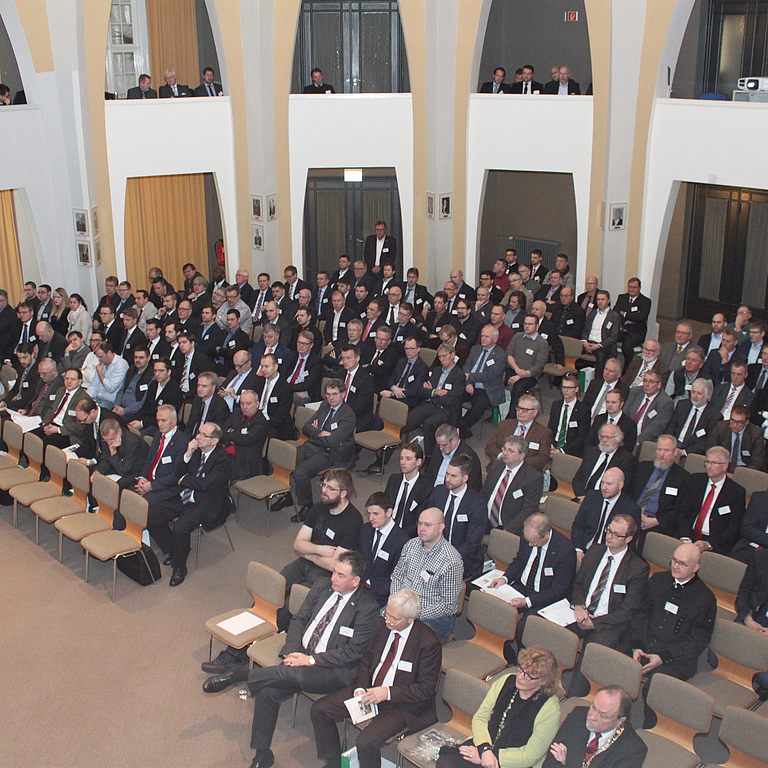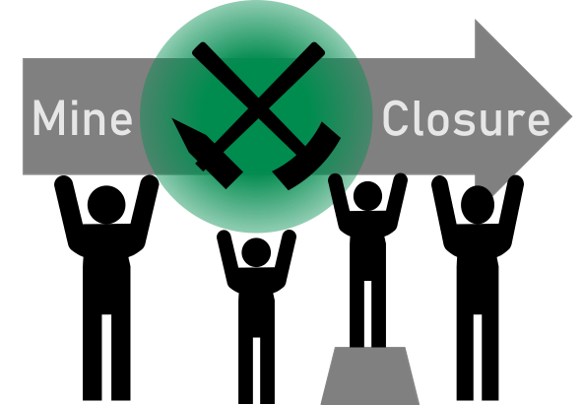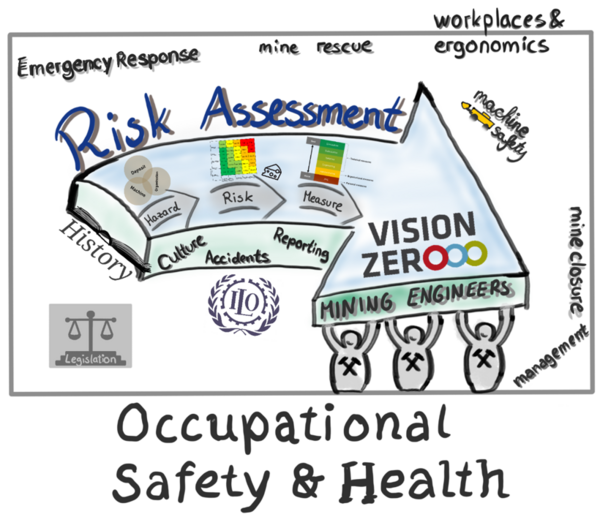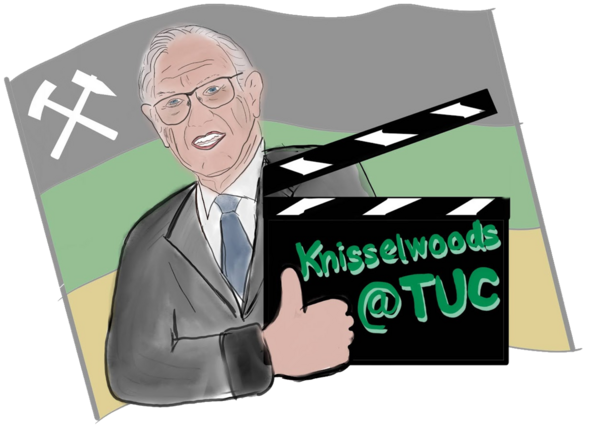Beiträge zur 32. Jahrestagung der Society of Mining Professors (SOMP)
Innovation in Lernen und Lehren vorgestellt
Eine große Delegation des Instituts für Bergbau nahm an der 32. Jahrestagung der Society of Mining Professors (SOMP) teil. Neben der aktiven Mitarbeit in Kommittee-, Counciltreffen und Diskussionen trugen die Teilnehmenden vier Präsentationen bei. Außerdem wurde eine Nachwuchswissenschaftlerin im Vorfeld für eine Podiumsdiskussion ausgewählt. Ein weiteres Highlight aus Clausthaler Sicht war außerdem die Übergabe der Präsidentschaft an Prof. Dr. Oliver Langefeld, der zum Ende der Konferenz die Einladung zur 33. Tagung nach Clausthal aussprach.
Im Weiteren sind die Beiträge vorgestellt und Materialien verfügbar gemacht.
I+MC: Development and implementation of a modern mine closure course
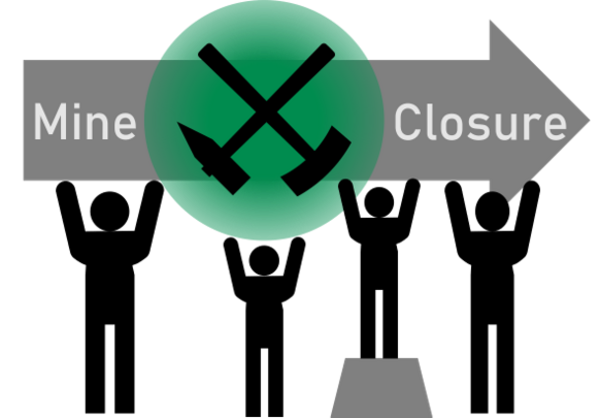
Hutwalker, Alexander; Binder, Angela; Langefeld, Oliver
Abstract
In the lifecycle of mines, mine closure represents the transition from the most active period of the mine towards the longest one. Today, closure concepts are not only in most countries a legal requirement to gain the mining permit, but also a key for gaining the social license to operate and thus needs to be considered proactive already in the earliest stage in responsible mine planning. As often in the field of Mining, the state of the art is based on best (and unfortunately often worst) practices and lessons learned from numerous cases representing a tremendous part of the current practice. Also, mining companies’ internal standards and their CSR policy are another big part of the requirements considered in mine closure.
Based on its high relevance for mining, Mine Closure needs to be included in the Mining Engineering Education. In most Mining Engineering curricula, and also at Clausthal University of Technology, this is done by addressing this highly relevant topic as one part of mine planning or environment-related lectures. However, the full complexity of this topic cannot be discussed under these conditions. This is why at Clausthal University of Technology an additional course, focusing solely on the topic of mine closure with all its interdependencies, was created and added to the curriculum as elective course for the mining engineering students. The course combines case-based teaching-and-learning activities in a blended-learning format with preparation, face-to-face meetings, and excursion and follows the case-based approach also in the assessment. The approach follows a fully competence-oriented approach and supports learning in groups. The development and implementation phase were funded by a project granted by the state’s ministry of science and culture.
The presentation will include the course development concept, the course concept, and the results of the first implementation. The approaches chosen are widely transferable beyond the field of mine closure but can be also seen as an inspiration for other course development projects.
Underground Mine Safety: An integrated approach for the course and personnel development
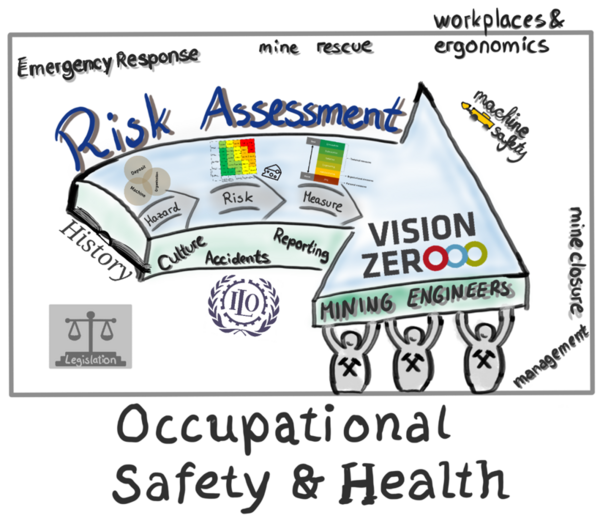
Binder, Angela; Hutwalker, Alexander; Langefeld, Oliver; Bauermeister, Julius; Bothe-Fiekert, Mareike; Nowosad, Sandra
Abstract
The mindset of educators and their skills highly influence at all levels the learning outcomes of students. Hence, its development is important for progression as educators. In University education as Mining Engineering Education, learning is guided by members of academia without a specific education on education. They are qualified for their position by a more or less standardized system of research-based education within Master’s and Ph.D. (programs) and follow-up positions guided through common scientific practice. Within this personnel development, the development of teaching skills and mindset are often not standardized and optional. While those programs for didactics for higher education need to consider the diversity of the group and different possibilities in on-hand-teaching. A discipline-specific hands-on development can often not be realized especially in small disciplines such as Mining Engineering. So, learning-by-doing is still the state of the art for many young educators mostly Ph.D. students.
In competition with other career paths and aiming for excellence in research and teaching, effective human resources development within the Ph.D. qualification is fostered in many modern programs but still challenged by non-specific sometimes less-practical courses that may not fit the schedule and discipline of attendees. At Clausthal University of Technology, a new path has been created to develop the teaching skills of Ph.D. students in mining-specific course development. Due to the reaccreditation of the Masters’s program, a specific course on Underground Mine Safety is included in the program resulting in the need for course development. This course was developed by a team of young and experienced educators focusing not only on the course development but also on the mindset and skill development of the involved junior educators. As a team mission, the course and skills were developed on all elements of the Constructive Alignment in a group-based setting during the first part of the project where they design the course and its activities. In the following implementation part, they made their first teaching experiences chaperoned by a peer and an expert. A follow-up workshop sets the base for the next implementation.
The paper and presentation include an overview of the course and personnel development concept and shares experiences of the first implementation. The process presents an example of the transfer and management of knowledge and skills within an organization and contributes to closing the gap between general course offers for didactics in higher education and discipline-specific didactics.
Knisselwoods: Our Media lab
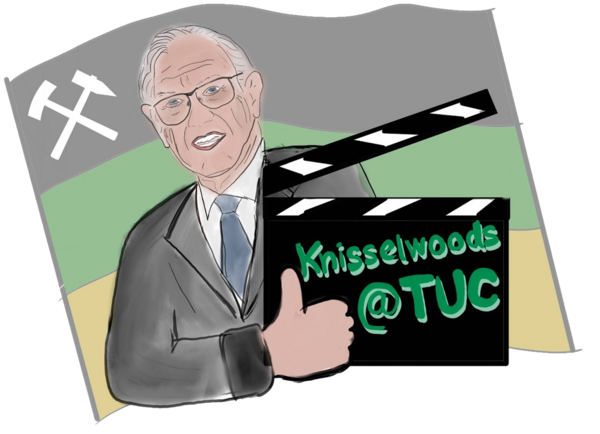
Binder, Angela; Bothe-Fiekert, Mareike; Hutwalker, Alexander; Langefeld, Oliver
Abstract
Besides influencing many other areas, COVID19 has changed education and research as well. The presentation of contents has transferred from synchronous digital-supported styles towards a fully digital asynchronous way. Especially video presentations e.g. screencasts as part of courses or conference contributions became the “new normal”. Well-designed and produced videos can make a tremendous contribution to the learning of individuals – not only students – as proved long before the global pandemic situation.
Driven by the need for digitalization in education and supported by the possibilities and chances offered through a large European Wider Society Education project in which The Institute of Mining participated, the media lab of the Institute of Mining at Clausthal University of Technology was massively expanded and new technology was introduced. The new media lab – named after Prof. Walter Knissel - allows to plan and produce different media, especially videos in high quality and adequate environment. The positive feedback on the produced videos and other materials supports the efforts made. Furthermore, the facilities are modular based and partially mobile allowing a wide range of applications but also transfer for other educators.
The conference contribution shares the design consideration for the set-up, experiences made, and integration of different media. Preferentially, this contribution is planned as a video or as a poster to inspire SOMP AGM participants to innovate their “Medialabs” and learn from the experiences made at Clausthal University.
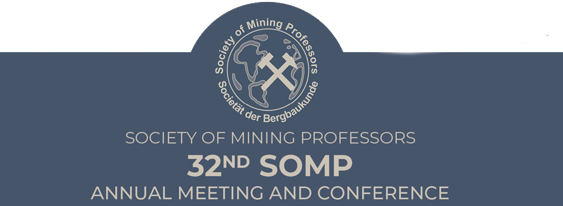
Weiterführende Links
32. Jahrestagung der Society of Mining Professors

